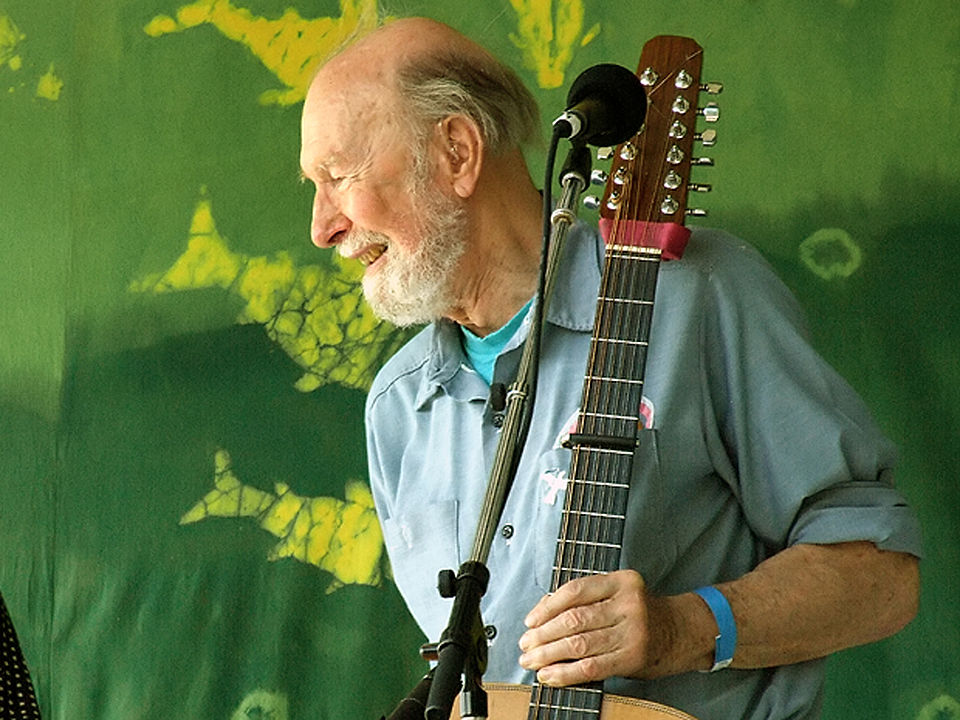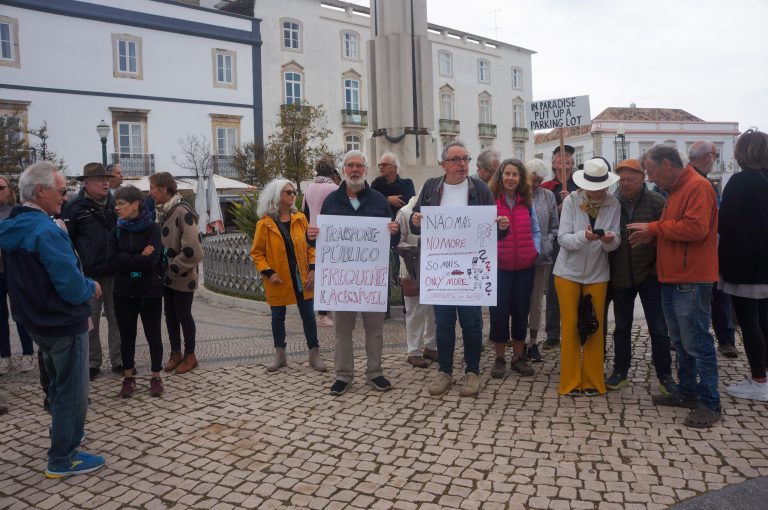Pete Seeger – Community activist, musician, and inspiration for peace
I don’t want to focus my thoughts on war right now or the arguments about who is right or wrong. What I need is hope. So with that purpose in mind I have edited and updated this article first written in 2014. Maybe it will resonate with your desire for peace and hope too.
Image credit – Pete Seeger at the Clearwater Festival in June 2007
Photo taken by Anthony Pepitone
Pete Seeger, singer and musician, died on January 27, 2014. His unique style and passion for music brought people together locally and globally.
His songs with words such as “We shall overcome” or “Where have all the flowers gone” stirred millions to march and protest against wars, inequality, and injustice.
When Pete died In 2014, I listened to a few of his songs, such as – “If I had a hammer.” The words of the song made me smile. I replayed my youth in my mind, a time when I was full of hope and wonder.
If I had a hammer
I would hammer in the morning
I would hammer in the evening
All over this land
I would hammer out danger
I would hammer out warning
I would hammer out the love
Between my brothers and my sisters
All over this land.
Lyric Credit
The words seem to echo a simple concept, love between people in the same worldwide family.
Blacklisted in the 1950’s, Seeger’s music was not played on the radio and television for about 17 years.
The 1960’s saw the rise of the American Civil Rights movement. The anthem for peace, “We Shall Overcome,” was popularised by Seeger, and of course, Joan Baez, along with other folk singers, recorded the song.
Despite being blacklisted, Seeger continued to use music and singing as a way of creating change – you could say, his small steps were an attempt to make a better world.
Not able to perform to large audiences, he sang in schools and taught children the magic of playing instruments and singing songs together. It seems to me this was a terrific way to spread peacefulness into an emerging generation.
I was a teenager in the 60s. Children learned the songs from the radio and sang the songs in school. I sang the songs, and my heart opened up to what was possible, if only. These peaceful messages of hope positively affected many young minds, and some turned these ideas into local action in communities. I think of community activists such as Barak Obama. Peace was not at the fore of my mind in my working life, but community and how we could live better lives were part of my journey.
Seeger performed across the USA until he was 94. For the last 20 years of his life, he regularly performed with his grandson Tao Rodríguez–Seeger. They share a passion for music, social justice and a desire for people to help one another.
Age did not slow Pete down. In an interview, in 1998, to the National Press Club he said he was busier than he had even been, supporting all sorts of local causes, such as cleaning up the Hudson River. His comments help me to stay present and to see sliding into being an old age pensioner as an opportunity for hope.
He said, “I tell people who say there is no hope, did you expect the Berlin Wall to come down so peacefully, or did you expect Mandela to be President of South Africa? Well, if you could not predict that, then don’t be so confident that there is no hope. There are reserves of genius showing up, all through this world”.
On his grandson’s banjo are the words, “There is no hope, but I may be wrong.” This makes me smile.
When I shared this article with my husband, Jim, in 2014, we talked about another closer-to-home activist, his father – Charlie Hall, a lifelong Communist. Jim often jokes that the only time he ever saw his father was on peace marches. Charlie’s funeral in 2009 at the age of 95 was a moment of reflection and celebration for a few family and global connections. We joked at the time that the whole Communist Party of Great Britain must have turned out for this comrade, all 20 of them. We smiled at those who came to remember. Their sincerity and that of Charlie’s efforts for a better world are respected. Representatives from the African National Congress also came along and shared stories of Charlie’s work in the libraries of South Africa under Mandela.
As we gathered around the grave, a representative from the local (Newcastle/Durham) Communist party said kind words about Charlie Hall. The opportunity to speak to this captive audience was too much for this campaigner. He invited everyone to the next meeting of the party, reassuring us that Charlie would have done the same. The stories about Charlie’s activism were funny, even powerful. But standing behind me, I heard a quiet voice say, “but he was not a family man.” Charlie’s daughter wanted a Dad, not an activist. Jim hoped for both, father and activist.
Activism can take a toll on family relationships.
Over his long life, Pete Seeger seemed to get the balance right.
Writing this article in 2014 and now updating it in 2022, as war rages in various regions, led me to think about my life.
My childhood was one of indoctrination by Jehovah’s Witnesses. My future could have been one of expecting the end of the world to arrive. It could have been that of an activist preacher coming to your door, disturbing your life on a Saturday morning. When I was 28 I chose other activism. My life has been rich and fulfilling, full of travel, good friends, and sweet memories. I did not expect that because as a child growing up as a Jehovah’s Witness, particular messages become the focus of your life. One clear and persistent transmission in my childhood was that the world is terrible and an unsafe place. Another story shared is that the world is full of people who should not and cannot be trusted. A further message is people who are not Jehovah’s Witnesses deserve to die. It’s strange to think Jehovah’s Witness parents are still teaching children these stories, espoused by their leaders.
I left those beliefs a long time ago. I prefer to think like Pete, “There are reserves of genius showing up all through this world.”
Until the end of his rich life, Pete Seeger inspired, campaigned, and performed. Below is a Youtube video where Pete narrates a Bob Dylan song for Amnesty International. He sings a song about being – “Forever Young” with a group of children. You can see the warm human being who still considered he had work to do to make this world a better place for his grandchildren.
https://www.youtube.com/watch?v=Ezyd40kJFq0
Here is another video that documents Pete’s thoughts on hope.
Pete Seeger In His Own Words: Environment, Civil Rights, Songs, Communism, Science, the 1960s (1998)
https://www.youtube.com/watch?v=MrM_TGX-KMk
It seems to me these videos are a testament in many ways of a rewarding, honest, hopeful, caring, love-filled life. What a great legacy he left for this world.

